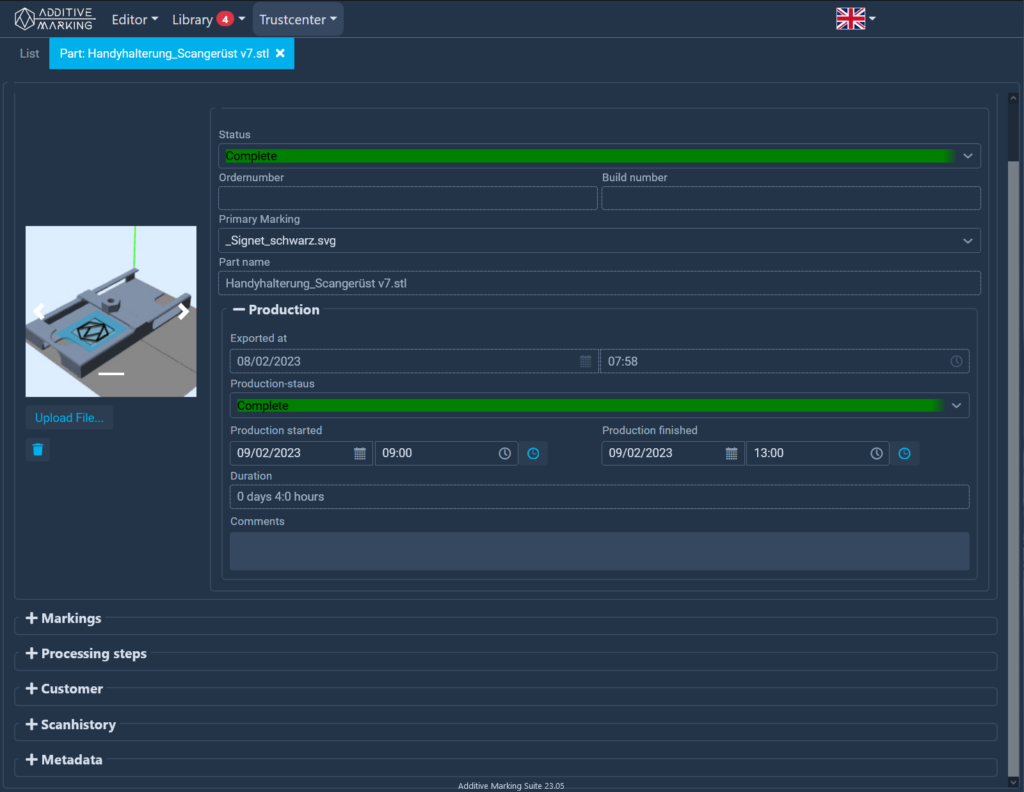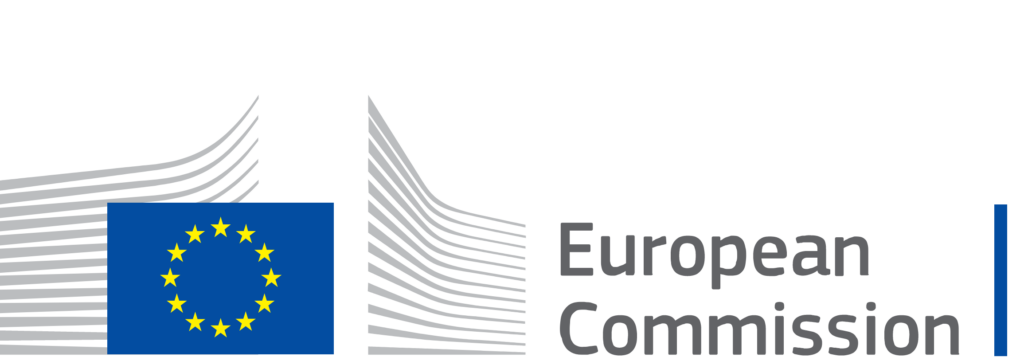Digital Product Passport and the new sustainability
Digital Product Passport (DPP)

What is a DPP?
A Digital Product Passport (DPP) is a digital tool which combines product data from across the value chain. Information about raw materials, manufacturing location, order number, recycling information etc. can be made available to view by relevant stakeholders. DPPs enable the complete, end-to-end traceability of products, and provide numerous benefits:
- Helps create more circular business models
- Enhances product protection through quality assurance and brand protection
- Verifies product compliance with industry standards
- Aids consumer decision-making
- Supports tracking of progress towards sustainability goals
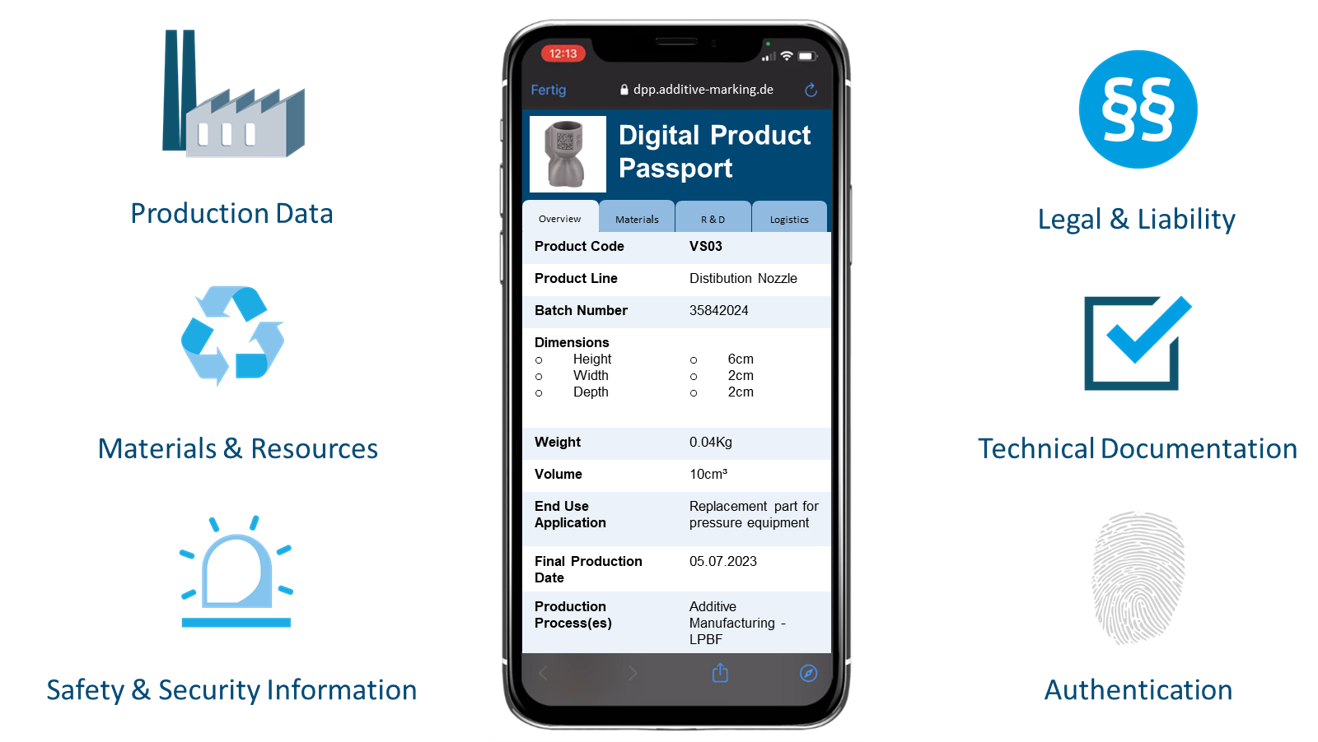
Standardised Data Presentation
Proof of Compliance
Quality Management
Incoming Legislation
With the introduction of the EU’s Circular Economy Action Plan (CEAP) approaching, DPP usage is set to rapidly increase. Automotive, aerospace and industrial manufacturing industries in particular are likely to see widespread DPP adoption in the near future, particularly following the successful implementation of the Battery Passport. Preparing for the DPP ahead of its introduction will provide your organisation with a competitive edge in your sector.
The future of business
ESG reporting faces many challenges. Difficulties tracking Scope 3 Emissions, calculating embodied carbon and boosting recycling rates are challenging in current supply chain configurations. For a truly sustainable future, greater production transparency and digital connectivity is required for companies to achieve their ESG goals. With our Additive Marking Suite, traceability down to the individual component level allows you to overcome many of these hurdles, facilitating complete value chain mapping from accurate emissions tracking to recycling.
With growing pressure on companies to report their annual progress towards Environmental, Social and Governance (ESG) goals, providing accurate and insightful information around sustainability performance is paramount for strengthening brand reputation.

How we help
We support you to develop and manage your own DPPs, helping to enhance your product value and streamline your supply chain. Unique item data from batch number to production location, material composition to embodied emissions, quality-standard compliance and end-of-life disposal can all be included in a Digital Product Passport. Depending on your requirements, we help you develop a DPP which best addresses your organisational needs. Our Digital Product Passport allows you manage part information at different levels and for different stakeholders. The goal is to allow our customers to have as much flexibility as possible when implementing their own DPPs.

Raw Materials
Transportation
R&D
Production
Usage
Recycling
Detailed Data Management Through "Sub-Passes"
Specific data supply chain data can be made available to different stakeholders through "sub-passes": these are standalone sections of the larger DPP which correspond to different stages in the product lifecycle. Raw Materials, Transportation, R&D, Production, Usage and Recycling are the general categories. The benefit of these Sub-Passes is that user groups are able to quickly view information critical to their business function, enabling quicker, more informed decision making.
- Enhanced resource efficiency through improved tracking of production processes, materials etc.
- Opportunity to optimise internal organisation systems with unit-level part identification
- Risk minimisation – greater end-to-end transparency enables the quicker identification and resolution of risks
- Improved communication of environmental strategy to customers.
- Continuous improvement tracking
- Improved quality management
- Centralised access to relevant product information
- Quick identification of parts in warehouse/in transit
- Easier access to delivery information
- Greater transparency and access to supplier/ manufacturer information
- Rapid logging of inspection data in the field.
- Traceable timeline of inspections.
- Quick identification of faulty components traceable back to batch, machine etc.
- Digital access to product information.
- Greater customer trust through transparent carbon reporting and ethical procurement
- Enhanced digital interaction with customer
- Streamlined waste segregation
- Higher quality feedstock for manufacture
- Reduced contamination risks due to documentation of substances
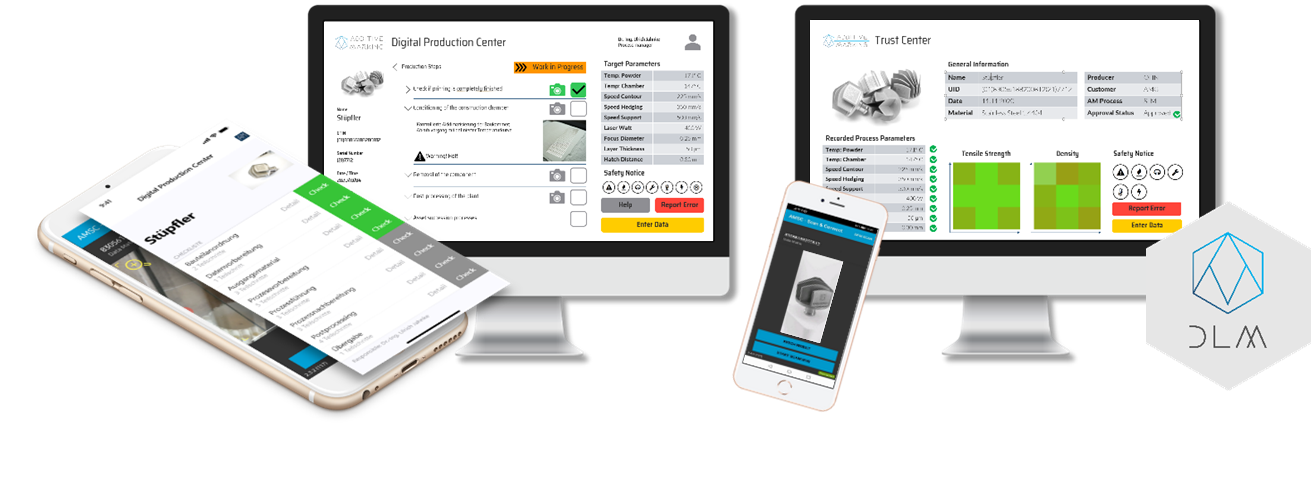
The Additive Marking TrustCenter
As your business generates potentially thousands of unique markings, effective data management becomes vital to unlocking their value. Our Digital Lifecycle Management (DLM) TrustCenter is equipped with numerous features designed to enhance traceability and automation across your production process.
Our TrustCenter, integrating with your ERP, PLM, and MES systems, manages your part’s digital twin from component to project level. It offers digital inventory management, supporting compliance to ISO 9001 process documentation, status updates, label generation, and comprehensive part data management.
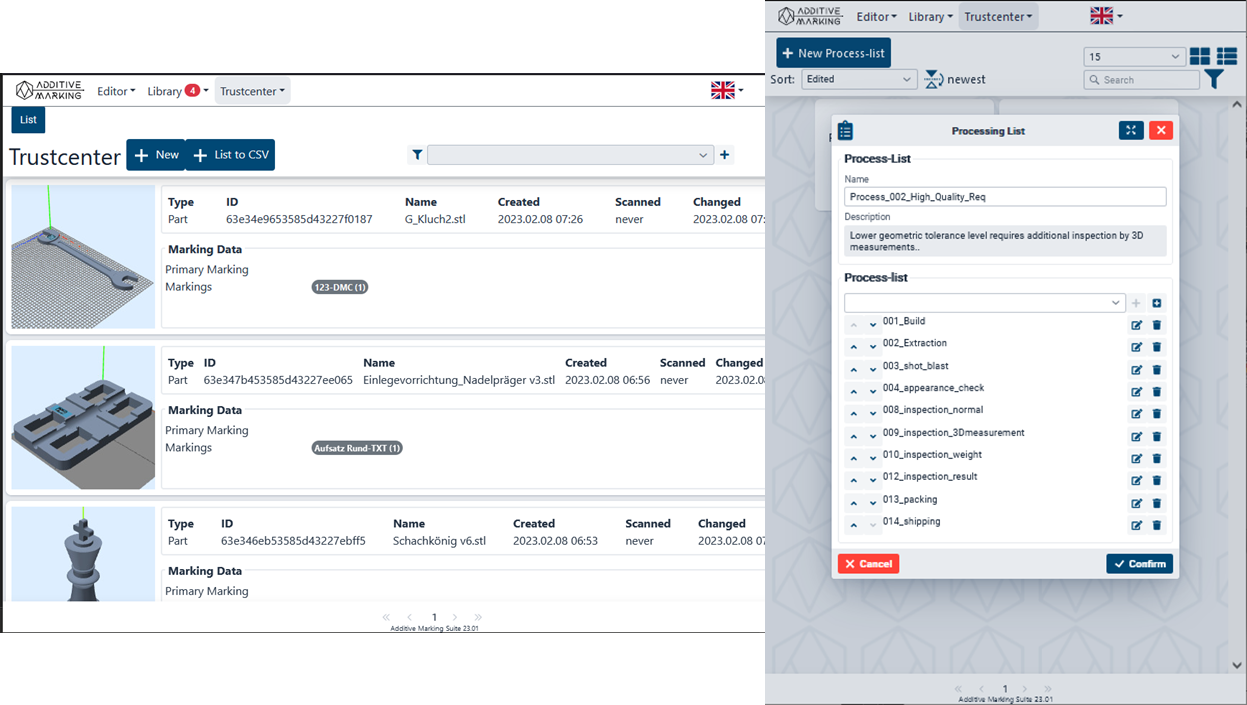
Paperless Workflows
Our TrustCenter digitizes workflows, eliminating paper documentation like route cards. It allows attachment of various documents to components - such as quality reports, compliance certificates etc - enriching item details and process parameters
Quality Assurance
If components and processes are subject to certain quality, safety or environmental standards, qualification certificates and other relevant documents can be connected to the digital twin via our TrustCenter.
Multi-Stakeholder Access
Our TrustCenter ensures secure, seamless workflows by facilitating the connectivity between the physical part and its digital twin. The TrustCenter enables centralised reporting which supports inter-departmental communication and continuous improvement, breaking down data silos.
